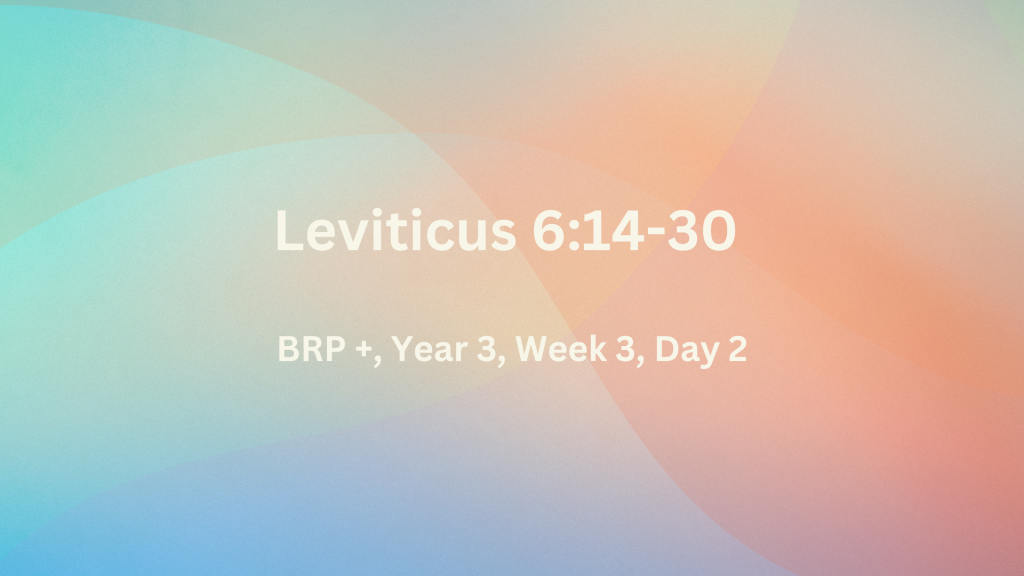Leviticus 6:14-30
Q.1. Who offered the grain offering? How was it offered to God? Who could eat it? What blessing did it bestow? – (Lev.6:14-18)
We learned in Leviticus chapter 2 that the grain offerings were offerings made by the people to express their gratitude to God. It blesses God when we are thankful (c.f. 1 Thes.5:18). It also brought blessing to the priests who ministered before the Lord, because – what is left of it, Aaron and his sons are to eat … I have given it as their share from My offerings by fire; It is most holy … (Lev.6:16-17). Only a handful of the fine flour mixed with oil and incense was offered up in the smoke, as – a soothing aroma, as its memorial offering to the Lord (Lev.6:15). The grain offerings were granted to the priesthood permanently and confirmed their consecration to the office of priesthood (Lev.6:18).
Q.2. How was the grain offering at the time of consecration different? How was it offered? Could it be eaten? – (Lev.6:19-23)
At the time of consecration of the priests they were not to eat the grain offering but – … it shall be entirely offered up in smoke to the Lord. So every grain offering of the priest shall be burned entirely. It shall not be eaten (Lev.6:22-23).
Q.3. What did it mean that the sacrifice for sin was holy? Under what circumstances could it be eaten? – (Lev.6:24-30)
God had made a gracious provision for the forgiveness of sin, by which a sinner could be forgiven and made holy (Lev.6:24-25). The priest was allowed to eat it these offerings in the court of the Tabernacle (Lev.6:26 & 29). These offerings conveyed a special blessing to the officiating priest, as do the blessings given to those who labour to teach the Word of God (c.f. 1 Tim.5:17; 2 Tim.2:15). If blood splashed on a garment, the garment was to be washed. The vessel used to cook the offering for the priests to eat, was to be disposed of, if a clay pot. A bronze pot was to be carefully scoured and rinsed, so that it did not become stained and unclean (Lev.6:27-28). However – no sin offering of which any of the blood is brought into the tent of meeting to make atonement in the holy place shall be eaten; it shall be burned with fire (Lev.6:30). The priests had to remember that the offerings of God’s people were sacred and holy.

